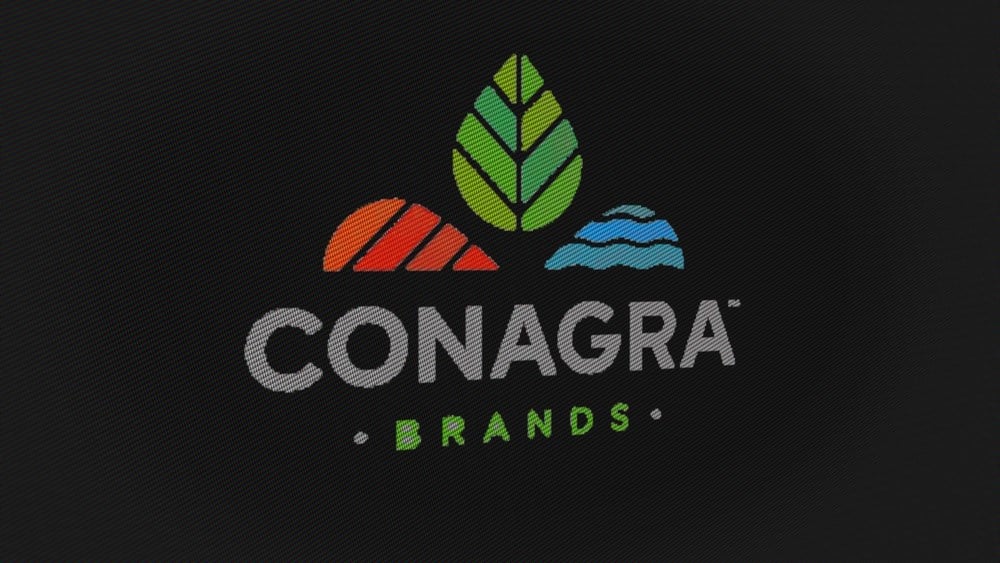
The classic definition of a value trap is a stock or investment that appears to be trading at a cheap price and has valuation metrics such as its price-to-earnings (P/E) ratio that signals it has been undervalued for an extended period.
However, while these stocks can often present a buying opportunity, they can be a trap if the market has already priced in what it expects to be lackluster future performance. In this case, investors looking for growth may be disappointed, even when the stock has a high-yield dividend.
That would seem to be the case with Conagra Brands, Inc. (NYSE: CAG). The stock is down over 20% in the last 12 months. However, Conagra is part of the Consumer Staples sector which has been expected to be one of the better-performing sectors due to its defensive positioning. That is, the companies in this sector manufacture and market products that consumers need regardless of what's happening in the broader economy.
However, it's fair to remind investors that stocks are often cheap for a reason. So which situation applies to CAG stock? Here are the arguments for the stock being a savvy buy and the arguments that suggest it could be a value trap.
The Argument for a Savvy Buy
Early on in this earnings season, there is some evidence that the "revenge travel" phenomenon may be winding up. If that's the case, consumers may decide to preserve capital for their essentials. That would include the products that Conagra offers.
This could be reflected in the company's earnings. In its most recent quarter, the company beat expectations by 10%, which was about a 15% gain YOY. It bears repeating that earnings growth is one of the most accurate predictors of stock price growth.
Conagra expects to grow earnings by 2.6% in the next 12 months, an outlook the company left unchanged in its most recent NYSE: CAG">earnings report.
If that's the case, investors should expect some stock price growth to go along with a dividend that has an attractive 5.25% yield, which is higher than the 10-year Treasury note yield.
The Argument for Value Trap
One bearish argument is that the company's growth is due to pricing power more than volume. A quick look at the company's revenue paints the picture.
In the last quarter, Conagra delivered revenue of $2.90 billion. That matched the revenue the company reported on a year-over-year (YOY) basis. However, the number was short of analysts' projections. And that only tells part of the story. Conagra's net sales are up around 10% in the last three years. But its net income is down almost 50%
Consumer staples is also a competitive sector that has been performing poorly this year. The Consumer Staples Select Sector ETF (NYSEARCA: XLP) is down slightly over 2% in the last 12 months. But unfortunately for Conagra shareholders, CAG stock has not only underperformed the ETF, but it's also down more than 22% over that same period. That makes it one of the worst-performing stocks in the sector.
Add to both of these the, for now, anecdotal concerns about the effect of NYSE: CAG">weight loss drugs on consumer staples companies, and investors don't have to look that far to find reasons to stay on the sidelines.
It Comes Down to the Consumer
Your decision to buy Conagra at this time will likely come down to your view about the outlook for the economy. There was ample evidence in the recent earnings reports from companies like Walmart, Inc. (NYSE: WMT) and Dollar General Corporation (NYSE: DG) that consumers are pulling back on discretionary spending.
And companies like Costco Wholesale Corporation (NASDAQ: COST) are noticing an increase in sales of house brands as opposed to the name-brand products of companies like Conagra.
There may be no easy answer. It's a reminder that investors can look for technical signals, analyze earnings reports, and look at analyst ratings and price targets and still not get a clear buy or sell signal.
Nevertheless, if you have a long-term outlook, CAG stock appears to be at a point where it offers more upside than downside. Analysts seem to think so. The 13 analysts tracked by MarketBeat give the stock a consensus Hold rating with a price target of $34.71, giving investors a 30% upside.





